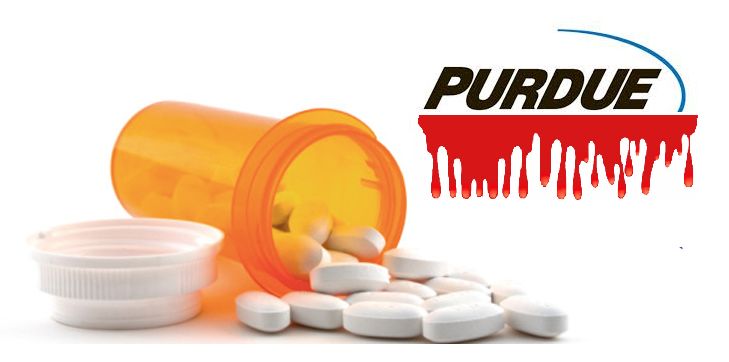Editorial: The good and bad of Purdue Pharma
Purdue Pharmacy recently filed for bankruptcy following lawsuits surrounding its role in the opioid epidemic.
September 23, 2019
It’s been over a week since pharmaceutical company Purdue Pharma filed for bankruptcy. The company’s financial troubles stem from lawsuits against the company for its part in the opioid epidemic as the manufacturer of OxyContin.
Many states have signed a settlement with the company, which forces Purdue Pharma to payout billions to those affected by the opioid crisis, but some have chosen to pursue further litigation in attempts to recover more of the money that such states believe Purdue Pharma and its owners, the Sackler family, have hidden offshore.
Regardless of your stance on the opioid crisis — Purdue Pharma’s role in it or the current lawsuits between states and the company — there is an important piece of information hidden in all the news stories. Purdue Pharma, the enormous pharmaceutical company that has produced billions of dollars of prescription medication, filed for bankruptcy … and they didn’t get bailed out by the government.
For so long, companies in the United States have been afforded financial protection by the federal government. Some such companies are seen as too integral to American society to allow them to fail. Others aren’t as important to our lives in the United States, but are such massive companies that losing their business could have negative impacts on the economy.
Purdue Pharma had its string of successes, but ultimately failed on its own. And while that may or may not be a good thing, it is a representation of a capitalist society determining which businesses succeed and which don’t.
Prescription medications are a huge reason America is at the forefront of medical advancement, and Purdue Pharma certainly played a role in that. Their products saved many lives and helped treat many illnesses and injuries. Losing such a company is unfortunate, but there are also ethical concerns with Purdue Pharma’s drug OxyContin, in how it has contributed to the opioid crisis and how the company has benefited financially from that.
So should the federal government have stepped in and helped Purdue Pharma?
It’s an interesting question and certainly one that would inspire some lively debate given Purdue Pharma’s contributions to society, both good and bad.
But ignore those things. It isn’t up to the government to decide if a company’s positives outweigh its negatives. That’s our job as consumers. And with Purdue Pharma, we made that decision.

















